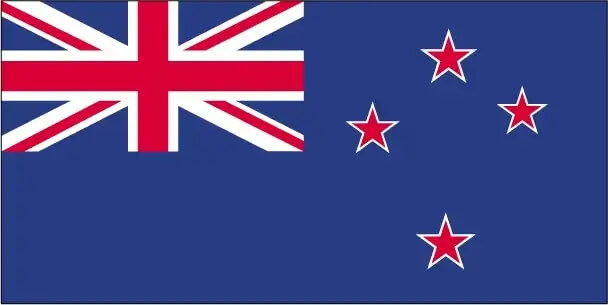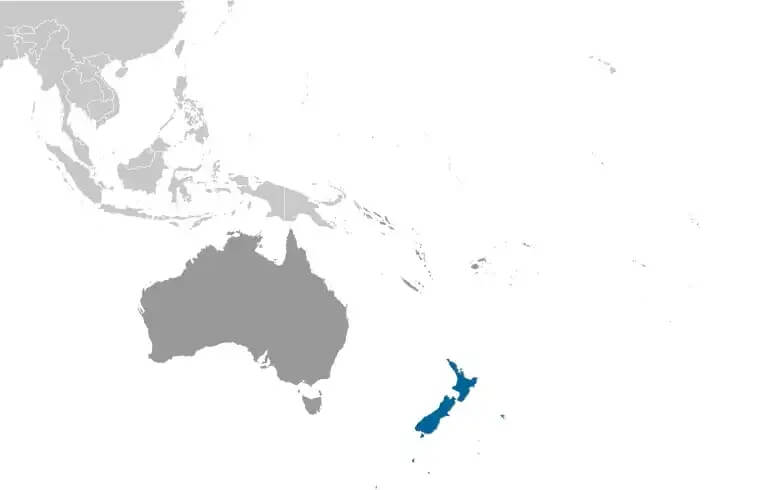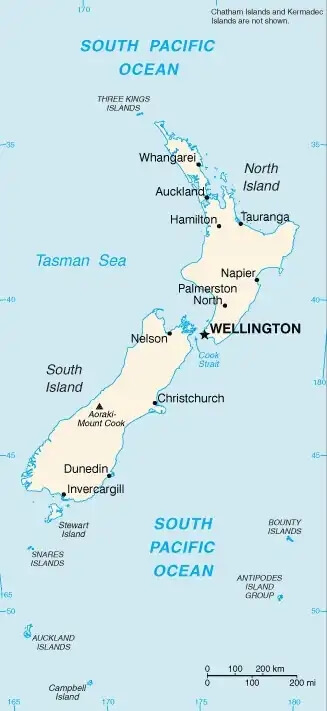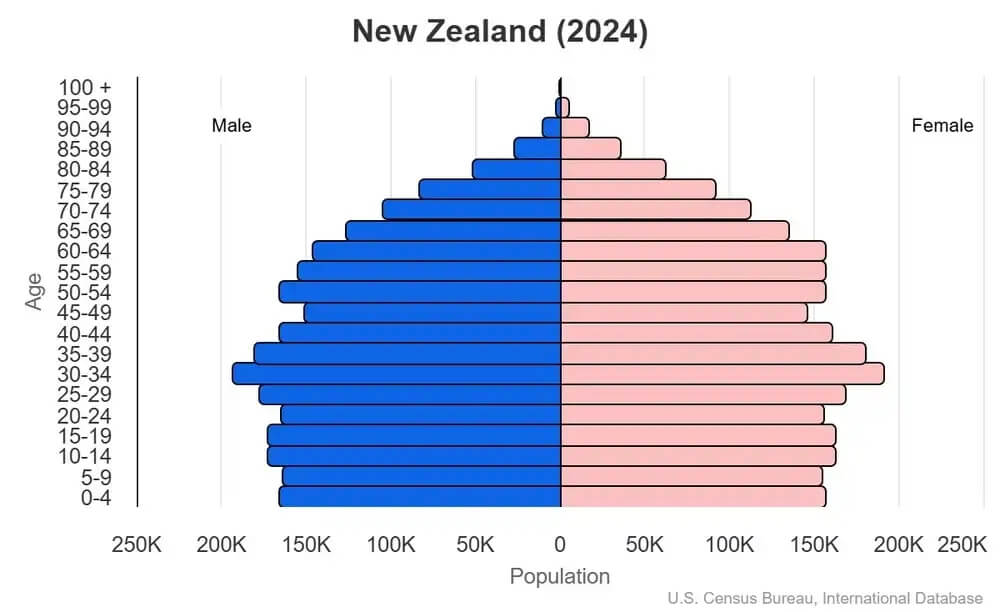World Book
New Zealand
World Book Index
79


With a score of 79, the country is ranked 17th out of 158 countries in the World Book ranking. (more information)
Introduction
The Polynesian Maori reached New Zealand in the late 1200s. In 1840, their chieftains signed the Treaty of Waitangi with Great Britain, ceding sovereignty while retaining territorial rights. The British colony of New Zealand became an independent dominion in 1907.
Neighboring countries
Australia - Fiji - France - Kiribati - Samoa - Tonga
Geography
Area
total: 268,838 sq km
land: 264,537 sq km
water: 4,301 sq km
Climate
temperate with sharp regional contrasts
Natural resources
natural gas, iron ore, sand, coal, timber, hydropower, gold, limestone
People and Society
Population
total: 5,161,211 (2024 est.)
Ethnic groups
European 64.1%, Maori 16.5%, Chinese 4.9%, Indian 4.7%, Samoan 3.9%, Tongan 1.8%, Cook Islands Maori 1.7%, English 1.5%, Filipino 1.5%, New Zealander 1%, other 13.7% (2018 est.)
Languages
English (de facto official) 95.4%, Maori (de jure official) 4%, Samoan 2.2%, Northern Chinese 2%, Hindi 1.5%, French 1.2%, Yue 1.1%, New Zealand Sign Language (de jure official) 0.5%, other or not stated 17.2% (2018 est.)
Religions
Christian 37.3% (Catholic 10.1%, Anglican 6.8%, Presbyterian and Congregational 5.2%, Pentecostal 1.8%, Methodist 1.6%, Church of Jesus Christ 1.2%, other 10.7%), Hindu 2.7%, Maori 1.3%, Muslim, 1.3%, Buddhist 1.1%, other religion 1.6% (includes Judaism, Spiritualism and New Age religions, Baha'i, Asian religions other than Buddhism), no religion 48.6%, objected to answering 6.7% (2018 est.)
Population growth rate
0.95% (2024 est.)
Government
Government type
parliamentary democracy under a constitutional monarchy; a Commonwealth realm
Capital
name: Wellington
Executive branch
chief of state: King CHARLES III (since 8 September 2022); represented by Governor-General Dame Cindy KIRO (since 21 October 2021)
head of government: Prime Minister Christopher LUXON (since 27 November 2023)
Diplomatic representation in the US
chief of mission: Ambassador Rosemary BANKS (since 17 June 2024)
Diplomatic representation from the US
chief of mission: Ambassador (vacant); Chargé d’Affaires David GEHRENBECK (since January 2025); note - also accredited to Samoa
Economy
Economic overview
high-income, globally integrated Pacific island economy; strong agriculture, manufacturing, and tourism sectors; reliant on Chinese market for exports; recovery trajectory following deep post-pandemic recession; challenges of fiscal deficits, below-average productivity, cost of living, and drop in net migration
Real GDP (purchasing power parity)
$257.117 billion (2024 est.)
$257.443 billion (2023 est.)
$253.903 billion (2022 est.)
Real GDP per capita
$48,200 (2024 est.)
$49,100 (2023 est.)
$49,600 (2022 est.)
Exports
$61.799 billion (2024 est.)
$59.029 billion (2023 est.)
$57.485 billion (2022 est.)
Exports - partners
China 28%, USA 12%, Australia 12%, Japan 6%, S. Korea 3% (2023)
Exports - commodities
milk, wood, beef, butter, sheep and goat meat (2023)
Imports
$67.998 billion (2024 est.)
$68.412 billion (2023 est.)
$71.35 billion (2022 est.)
Imports - partners
China 20%, Australia 11%, USA 9%, S. Korea 7%, Japan 7% (2023)
Imports - commodities
refined petroleum, cars, gas turbines, broadcasting equipment, trucks (2023)
Human Development Index
The country's Human Development Index (HDI) is 0.938, ranking it 17th out of 193 countries tested. (more information)
World Happiness Report
The World Happiness Report ranked the country 26th out of 158 countries tested with a score of 6.611. (more information)



